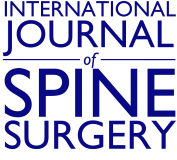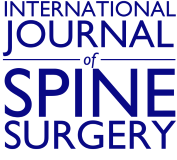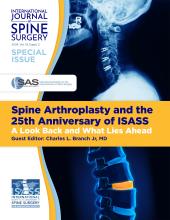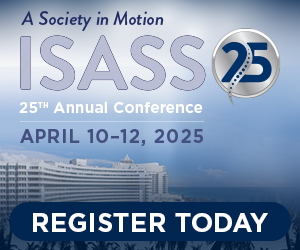- endoscopic spine surgery
- Rasch model
- surgeon experience
- clinical outcomes
- high-value procedures
- minimally invasive surgery
- clinical guidelines
- health care policy
Endoscopic spine surgery is rapidly advancing as a minimally invasive option for treating various spinal conditions, offering benefits such as reduced postoperative complications and quicker recovery times. However, the development of clinical guidelines for these procedures faces significant challenges due to the lack of high-grade clinical evidence from randomized controlled trials, which are often impractical in surgical settings. The Video presents an analysis of procedures in endoscopic spine surgery, based on data from nearly 800 surgeons participating in 4 International Society for the Advancement of Spine Surgery webinars. Using the Rasch model, a statistical tool that converts qualitative data into measurable insights, this study identifies endoscopic procedures that appear to provide favorable clinical outcomes when performed by experienced surgeons. The analysis identifies high-value procedures, such as percutaneous interlaminar endoscopic decompression and transforaminal full-endoscopic interbody fusion, and provides a framework for integrating surgeon experience into the creation of dynamic, evidence-based clinical guidelines. The Video addresses the limitations of traditional randomized controlled trials, offering an alternative and potentially more practical basis for guiding surgeon training and enhancing patient care. The findings have implications for health care policy, resource allocation, and the ongoing development of endoscopic spine surgery as a cornerstone of modern spine care.
Supplementary material
Video.
Footnotes
Funding No formal funding by private, government or commercial funders was received by the authors to produce this work.
Declaration of Conflicting Interests All authors aided in the collection, analyses, or interpretation of data; in the writing of the manuscript, or in the decision to publish the results. The authors declare no conflict of interest relevant to this research, and there was no personal circumstance or interest that may be perceived as inappropriately influencing the representation or interpretation of reported research results. This research was not compiled to enrich anyone.
Author Note Kai-Uwe Lewandrowski is a foreign corresponding member of the Colombian National Academy of Medicine, the Brazilian National Academy of Medicine, and the Brazilian Military Medical Academy. He is also president of the Interamerican Society For Minimally Invasive Spine Surgery (SICCMI).
Editor's Note For readers interested in learning more about the Rasch anaylysis studies and the authors' findings, view the IJSS special issue "Perspectives on High-Value Endoscopic Spine Surgery" at https://www.ijssurgery.com/content/18/S2.
- This manuscript is generously published free of charge by ISASS, the International Society for the Advancement of Spine Surgery. Copyright © 2025 ISASS. To see more or order reprints or permissions, see http://ijssurgery.com.







